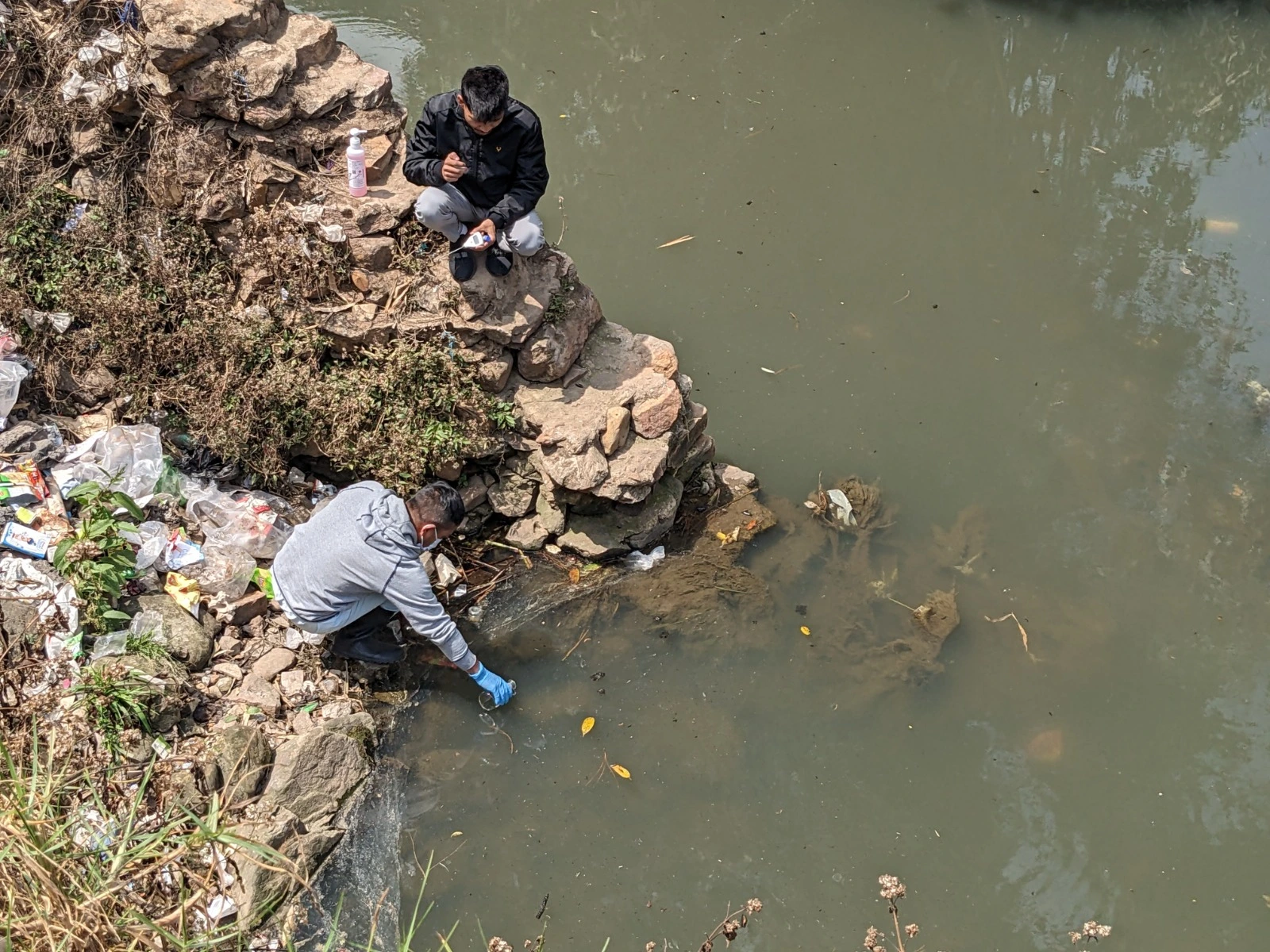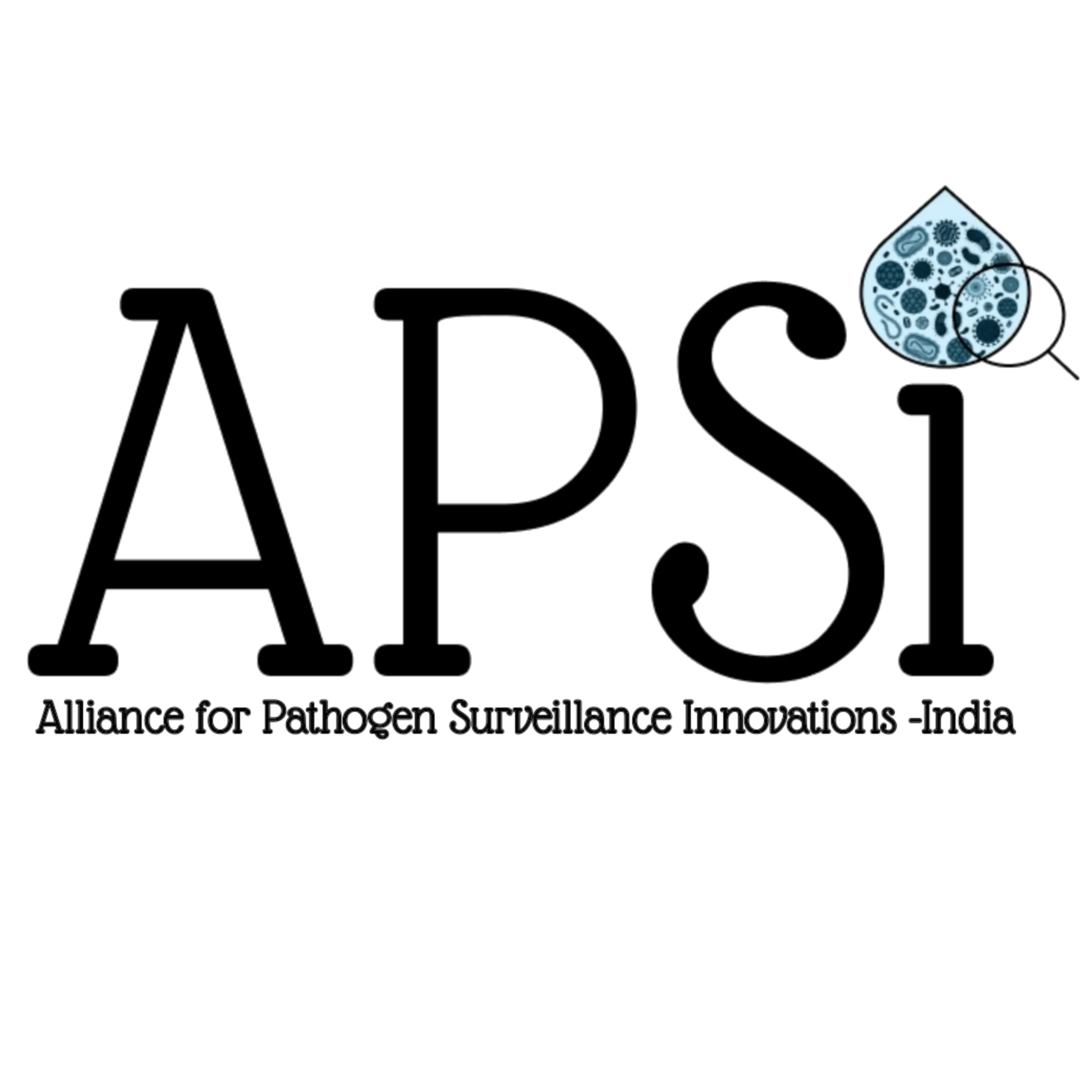Alliance for Pathogen Surveillance Innovations (APSI)-India: A model for wastewater-based epidemiology and disease surveillance
Aruna Panda, Program Director

Wastewater based epidemiology is an approach to environmental disease surveillance that offers a foundation for providing early warning signs for known and emerging infectious disease agents via cost-effective measures of health. Its significance has been reported during the SARS-CoV-2 pandemic where it proved to be an invaluable tool in detection of the circulating variants world-wide. Advantages of wastewater surveillance include:
● Comprehensive Disease Burden Assessment: Wastewater surveillance allows for a singular, comprehensive assessment of disease burden within a community, offering a more accurate reflection of both symptomatic and asymptomatic infections and the silent circulation of pathogens.
● Early Prediction of Outbreaks: The ability to detect silent waves of pathogens circulating in the environment facilitates early prediction of disease outbreaks. This proactive approach is instrumental in timely public health responses 1.
● Cost-Effective Population Testing: Measuring an infectious disease pathogen in wastewater (mostly from sewage treatment plants or open drains) provides a community-level estimate with a single test; hence presenting a cost-effective alternative to individual testing, enabling the testing of entire cities at a fraction of the cost as compared to traditional or individual testing methods3
● Identifying Emerging Threats: Wastewater surveillance has been an important tool that has successfully identified emerging threats to public health beyond the SARS CoV-2 pandemic2. It can further help detect pathogens identified by the World Health Organization in the priority list of pathogens contributing to antimicrobial resistance (AMR), which is a global health threat4.
In response to the second wave of COVID-19 and the critical need for an advanced pathogen genomics pipeline and enhanced data sharing, the Alliance for Pathogen Surveillance Innovations (APSI)-India5, was initiated in 2021, with funding from The Rockefeller Foundation6. The primary focus of APSI was to support the government’s efforts to bolster SARS-CoV-2 genomic surveillance in India, with a special emphasis on viral genome sequencing from both clinical and wastewater-based detection systems and to complement the task of government initiatives like the Indian SARS-CoV-2 Genomics Consortium7. The consortium (consisting of CSIR-Centre for Cellular and Molecular Biology8 in Hyderabad and its partners, TIFR-National Centre for Biological Sciences9/Tata Institute for Genetics and Society10 in Bengaluru and their partners, Ashoka University11/CSIR-Institute of Genomics and Integrative Biology12 in Delhi and partners, and Indian Institute of Science Education and Research13/CSIR-National Chemical Laboratory14/Pune Knowledge Cluster15 and partners in Pune) has worked towards setting up an advanced surveillance platforms, incorporating viral genome sequencing and wastewater-based detection and surveillance as well as enhancing bioinformatics, data analytics and sharing pipelines. Since its inception, APSI has developed country-wide networks with many research and clinical partners as well as local administrations and municipal corporations, for accessing samples as well as epidemiological clinical data on disease outcomes. While the first phase of the consortium’s efforts during 2021 were focused on detecting the then circulating SARS-CoV-2 variants, it has now expanded its wastewater surveillance program beyond SARS-CoV-2, employing a metagenomics-based approach for a comprehensive identification of various other pathogens of public health concern including viruses such as influenza and respiratory syncytial virus as well as bacterial pathogens listed as priority pathogens contributing to AMR.
Significant milestones achieved by the consortium include :
Robust Sequencing Strategy:
● Executed a two-pronged strategy encompassing prospective and retrospective sampling.
● Sequenced over 40,000 clinical samples detecting SARS CoV-2 variants since August 2021, 75% of the clinical sequences have been submitted to the Global Initiative on Sharing all Influenza Data16 promoting global data sharing
Swift and Efficient Data Submission:
● Achieved a 50% reduction in data submission time, from 20 to less than 10 days
● Shared timely information with government authorities for agile mitigation strategies.
Bioinformatics and Real-time Lineage Identification:
● Expanded focus beyond sequencing to enhance bioinformatics capacity, data analysis, and sharing pipelines.
● Implemented a real-time lineage identification system, promptly notifying state authorities of novel variants through an in-house dashboard http://rock.igib.res.in/ and dedicated website https://data.ccmb.res.in/apsi/ .
● The dashboard allows for real-time tracking and visual exploration of data inflow from consortium partners.
Comprehensive Metadata Analysis:
● Analysing metadata obtained from partnering hospitals, laboratories and testing centres.
● Focus on understanding the prevalence of vaccine breakthrough cases and reinfections, especially in the context of the Omicron wave.


Way Forward: APSI’s vision is to integrate environmental surveillance into existing surveillance programs in India with a focus to detect and predict disease outbreaks. This would significantly reduce costs associated with disease burden in India.
APSI Achievements & Highlights● Developed a working collaboration across 30+ organizations and 4 metropolitan cities. ● APSI has conducted wastewater surveillance from over 150 sampling sites established across India, with over 10,000 samples from the cities of Hyderabad, Bengaluru, Delhi-NCR, Pune, Shillong and other cities for detecting SARS-CoV-217, 18 and pathogens of public health concern (including influenza viruses and WHO priority list bacteria contributing to AMR19, 20) ● Created extensive protocols and network for vector-borne surveillance to detect high priority pathogens such as dengue viruses ● Capacity building for continuous monitoring of the COVID-19 and possibility of expanding the same to other diseases in the country. ● Adhered to a strict regimen of real time monitoring and reporting of the prevalence of variants for public health policies ● Developed Standard Operating Procedures and workflows to streamline genome sequencing, data analysis and wastewater sampling that will serve as a guide to monitoring pathogens of interest in the future. ● Developed data sharing and analysis dashboards hosted at a dedicated website. It is further working with ARTPARK21 to use the genomic sequencing data in developing AI-based predictive disease models which could forewarn public health officials of a disease outbreak ● Along with APSI’s partnership with C-CAMP22 InDx, it is focused on development of reliable and cost-effective indigenous diagnostic kits which can be utilized specifically for environmental surveillance ● Through various interactions with key stakeholders and policy makers at the state and national levels, the consortium is focused on highlighting the effectiveness of wastewater surveillance in reducing the disease burden in the country |
References :
1.Bethel, J. W. (2022) Wastewater Surveillance Provides a Powerful Tool for Monitoring and Controlling Communicable Diseases. J of Public Health Management and Practice 28(2): p 107-108.
2.Brouwer, A.F. et. al. (2018). Epidemiology of the silent polio outbreak in Rahat, Israel, based on modeling of environmental surveillance data. PNAS. 115 (45) E10625-E10633. https://doi.org/10.1073/pnas.180879811
3.Neyra, M. et. al. (2023). Establishing a Statewide Wastewater Surveillance System in Response to the COVID-19 Pandemic: A Reliable Model for Continuous and Emerging Public Health Threats. J of Public Health Management and Practice. 29(6):p 854-862.
4.Chau, K. K. et. al. (2022). Systematic review of wastewater surveillance of antimicrobial resistance in human populations. Environment International Apr; 162: 107171.
5.Alliance for Pathogen Surveillance Innovations-India. [https://data.ccmb.res.in/apsi/]
6.The Rockefeller Foundation. [https://www.rockefellerfoundation.org/]
7.Indian SARS-CoV-2 Genomics Consortium. [https://dbtindia.gov.in/insacog]
7.Indian SARS-CoV-2 Genomics Consortium. [https://dbtindia.gov.in/insacog]
8.CSIR-Centre for Cellular and Molecular Biology. [https://www.ccmb.res.in/]
9.TIFR-National Centre for Biological Sciences. [https://www.ncbs.res.in/]
10.Tata Institute for Genetics and Society. [https://tigs.res.in/]
11.Ashoka University. [ashoka.edu.in]
12.CSIR-Institute of Genomics and Integrative Biology. [https://www.igib.res.in/]
13.Indian Institute of Science Education and Research, Pune. [https://www.iiserpune.ac.in/]
14.National Chemical Laboratory. [ https://www.ncl-india.org/]
15.Pune Knowledge Cluster. [https://www.pkc.org.in/]
16.Global Initiative on Sharing all Influenza Data. [gisaid.org]
17.Lamba, S. et. al. (2023) SARS-CoV-2 infection dynamics and genomic surveillance to detect variants in wastewater – a longitudinal study in Bengaluru, India. The Lancet Regional Health-Southeast Asia.Vol.11, April 2023, 100151.
18.Rajput, V. et. al. (2023) Genomic surveillance reveals early detection and transition of delta to omicron lineages of SARS-CoV-2 variants in wastewater treatment plants of Pune, India. Environmental Sci and Pollution Res. Vol. 30, pp: 118976–118988.
19.Madhukar, M.K. et. al. (2024). Antimicrobial resistance landscape in a metropolitan city context using open drain wastewater-based metagenomic analysis. Environ Res. 2024 Mar 19;252(Pt 1):118556. doi: 10.1016/j.envres.2024.118556.
20.Nataraj, A. et. al. (2024) Metagenomic analysis reveals differential effects of sewage treatment on the microbiome and antibiotic resistome in Bengaluru, India [https://doi.org/10.21203/rs.3.rs-3867168/v1]
21.AI and Robotics Technology Park (ARTPARK). [https://artpark.in/]
22.Centre for Cellular and Molecular Platforms (C-CAMP). [https://www.ccamp.res.in/]
